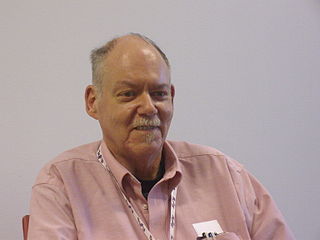A Quote by Edward Bulwer-Lytton, 1st Baron Lytton
Vanity, indeed, is the very antidote to conceit; for while the former makes us all nerve to the opinion of others, the latter is perfectly satisfied with its opinion of itself.
Related Quotes
Pride... is a very common failing, I believe. By all that I have ever read, I am convinced that it is very common indeed; that human nature is particularly prone to it, and that there are very few of us who do not cherish a feeling of self-complacency on the score of some quality or the other, real or imaginary. Vanity and pride are different things, though the words are often used synonymously. A person may be proud without being vain. Pride relates more to our opinion of ourselves, vanity to what we would have others think of us.
A vice sanctioned by the general opinion is merely a vice. The evil terminates in itself. A vice condemned by the general opinion produces a pernicious effect on the whole character. The former is a local malady; the latter, constitutional taint. When the reputation of the offender is lost, he too often flings the remainder of his virtue after it in despair.
The difference between a man who is led by opinion or emotion and one who is led by reason. The former, whether he will or not, performs things of which he is entirely ignorant; the latter is subordinate to no one, and only does those things which he knows to be of primary importance in his life, and which on that account he desires the most; and therefore I call the former a slave, but the latter free.
We were very effective, and I was very effective, in shaping public opinion around my campaigns. But there were big stretches, while governing, where even though we were doing the right thing, we weren't able to mobilize public opinion firmly enough behind us to weaken the resolve of the Republicans to stop opposing us or to cooperate with us. And there were times during my presidency where I lost the PR battle.
My curiosity, alas, is not the kind that can be satisfied by objective knowledge. Plato said that opinion is worthless and that only knowledge counts, which is a neat formulation. ... But melancholy Danes from the northern mists understand that opinion is all there is. The great questions transcend fact, and discourse is a process of personality. Knowledge cannot respond to knowledge. And wisdom? Is it not opinion refined, opinion killed and resuscitated upward? Maybe Plato would have agreed with this.
It is the utterly destructive quality. When you say vanity, you are thinking of the kind that admires itself in mirrors and buys things to deck itself out in. But that is merely personal conceit. Real vanity is something quite different. A matter not of person but of personality. Vanity says, "I must have this because I am me." It is a frightening thing because it is incurable.
I guess each of us, at some time, finds one person with whom we are compelled towards absolute honesty, one person whose good opinion of us becomes a substitute for the broader opinion of the world. And that opinion becomes more important than all our sneaky, sleazy schemes of greed, lust, self-aggrandizement, whatever we are up to while lying the world into believing we are just plain nice folks.




































